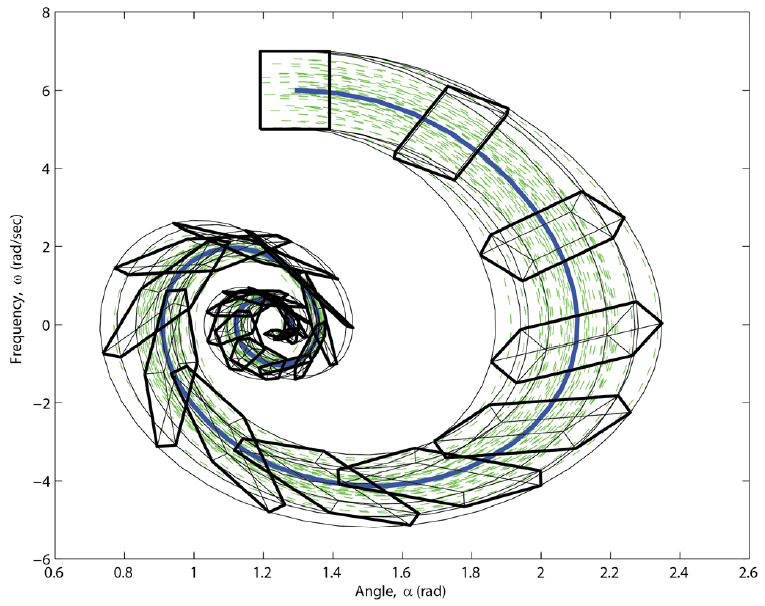EECS 535: Power System Dynamics and Control
Instructor: Prof. Ian Hiskens

Coverage
The course will introduce angle and voltage stability concepts and consider control strategies for improving dynamic performance. It will provide an overview of nonlinear dynamical systems, including geometrical properties of solutions, Lyapunov methods for approximating the region of attraction, and bifurcation analysis. Models of dominant dynamical devices, including synchronous machines, wind-turbine generators and tap-changing transformers, will be developed. The switched differential-algebraic structure of these models will be considered in the context of hybrid dynamical systems. Small disturbance (linear) analysis techniques will be developed, and applied to tune stabilizers for damping improvement. Methods for assessing large disturbance (nonlinear) behavior of power systems will be considered. Numerical integration forms the mainstay for such analysis. The variational equations describing the evolution of trajectory sensitivities will be developed, and methods for their efficient computation will be established. It will be shown that these sensitivities underpin shooting methods for solving a range of inverse problems relating to parameter estimation, grazing phenomena and limit cycles. Future control strategies will be considered, including techniques for enabling aggregate load to track fluctuations in renewable generation, and the use of model predictive control for alleviating cascading outages.
Syllabus:
- Overview of angle and voltage stability concepts, nonlinear dynamical systems, geometrical properties of solutions, Lyapunov methods, bifurcation analysis.
- Modeling, differential-algebraic systems, hybrid dynamical systems.
- Small disturbance (linear) stability analysis.
- Large disturbance (nonlinear) analysis, numerical integration, trajectory sensitivities, shooting methods, parameter estimation, grazing, limit cycles.
- Future grid responsiveness, non-disruptive load control, model predictive control.
Prerequisites
EECS 463 (or Permission of Instructor)
 MENU
MENU 
